dp0609 - FEP - Universidade do Porto
dp0609 - FEP - Universidade do Porto
dp0609 - FEP - Universidade do Porto
You also want an ePaper? Increase the reach of your titles
YUMPU automatically turns print PDFs into web optimized ePapers that Google loves.
ecent accounting scandals, the “Sarbanes-Oxley Act”, issued in the US in<br />
July 2002 with the purpose of increasing the level of investors' protection, and<br />
improving the truthfulness, scope and reliability of the accounting information<br />
released by companies (Klein, 2003).<br />
Auditors have a particularly important role in monitoring the quality of<br />
the financial statements published by firms. In fact, financial reports can be<br />
seen as a joint product of managers and auditors, involving negotiations<br />
between these two parties about the accounting treatment of particular<br />
situations, with an interaction between the context and the negotiation. Such<br />
negotiated process will usually lead to a compromise between managers and<br />
auditors as it is mutually beneficial that the auditor issues an unqualified<br />
opinion so as to avoid public attention, particularly from regulators (Gibbins et<br />
al., 2001; Nelson et al., 2002).<br />
Previous research (e.g. Beasley, 1996; Klein, 2002a; Xie et al., 2003)<br />
has shown that board characteristics have an important impact on the quality<br />
of accounting information. Our paper’s major contribution to this literature is to<br />
confirm such conclusions using the auditors' opinion as a different dimension<br />
of accounting quality, a feature which is, to our best knowledge, a novelty in<br />
this context. The Portuguese Exchange is an interesting environment to test<br />
such relationship given that, unlike currently major markets like the US, listed<br />
companies in Euronext Lisbon are not required to file financial statements in<br />
compliance with GAAP. In addition, our paper extends the literature on<br />
accounting information quality and, in more general terms, the monitoring role<br />
of non-executive directors, by analysing such issues in an emerging market<br />
environment for which little research is available.<br />
Our results show that, consistent with the importance of a monitoring<br />
role by non-executive directors, board of directors' diligence (proxied by the<br />
presence of an executive committee) and independence (measured by the<br />
proportion of non-executive members) have a negative impact on the<br />
likelihood of the auditor issuing a modified opinion. We also find evidence that<br />
the firm's financial health, performance, investment opportunities and dividend<br />
payments all have a negative impact on the probability of a modified opinion<br />
from auditors.<br />
4


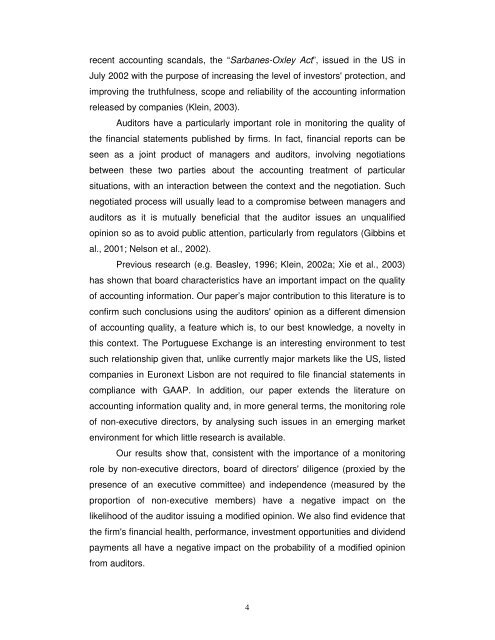

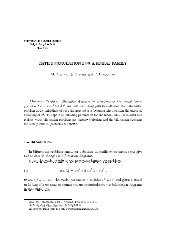
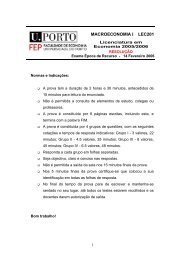
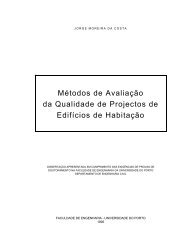

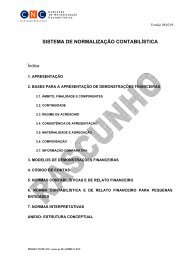
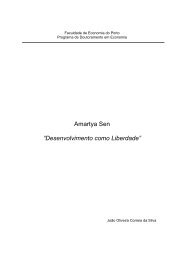
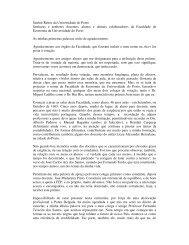
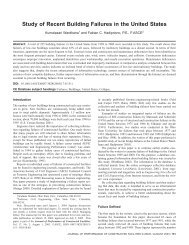
![Republica [Popular] de Moçambique. As Alterações Toponímicas e ...](https://img.yumpu.com/20789614/1/184x260/republica-popular-de-mocambique-as-alteracoes-toponimicas-e-.jpg?quality=85)




